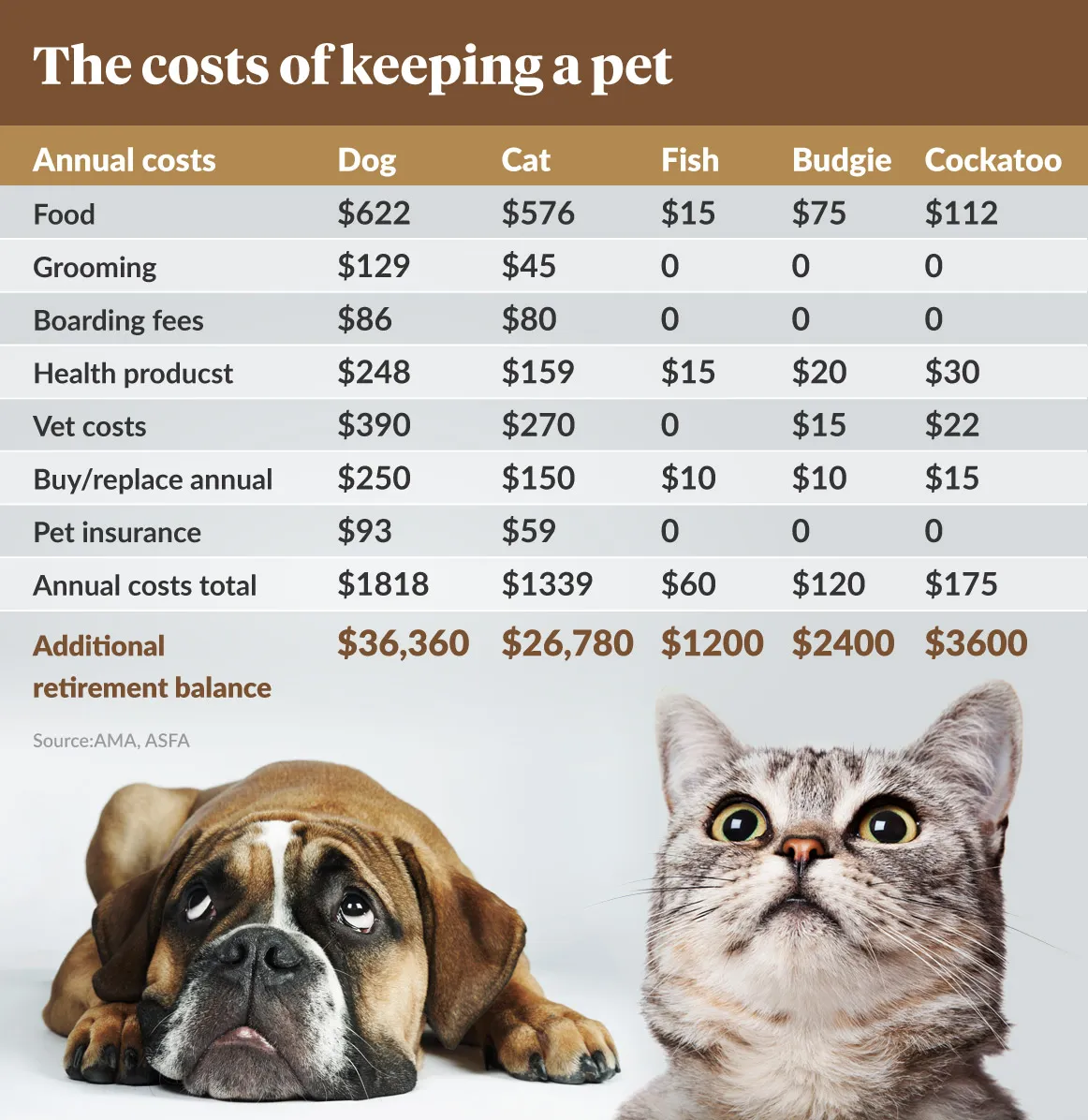The human-animal bond is a reciprocal and dynamic relationship that deeply influences our lives. It’s a connection steeped in mutual affection, wherein both humans and pets benefit. This relationship has evolved over centuries, with pets transitioning from working animals to cherished family members.

Increased Pet Ownership and Mental Health Implications
There’s been a significant surge in pet ownership, with over 60% of Australian households owning a pet. This rise isn’t without implications. Research indicates that pet ownership can have profound positive impacts on mental health. Pets provide companionship, reduce feelings of loneliness, and offer unconditional love and support, making them vital in promoting human well-being.
The Science Behind Pets and Mental Health
The therapeutic power of pets on human mental health has long been a topic of interest in the scientific community. A study published in Scientific Reports suggests that pet ownership is linked with improved mental health, due to the emotional support and companionship offered by pets.
When humans interact with pets, our bodies release a cocktail of hormones that contribute to our emotional wellbeing. This includes oxytocin, often referred to as the ‘love hormone’, which promotes feelings of trust and bonding. Dopamine, as well, is released, inducing a sense of pleasure and reward. Lastly, serotonin, a mood stabiliser, is produced, helping to boost our feelings of happiness and well-being.
Understanding the science behind the bond between humans and pets can provide valuable insights into their potential role in mental health interventions. This can lead to more targeted and effective strategies to improve overall mental health.
The Soothing Impact of Pets on Stress Reduction
Studies have consistently shown that interaction with pets can significantly reduce stress and anxiety in humans. The mere presence of a pet, particularly dogs and cats, can induce feelings of calmness and relaxation, creating a positive psychological environment.
Delving deeper into the physiological changes during human-pet interactions, these are not merely psychological but also physical. Petting an animal has been found to reduce both the heart rate and blood pressure in humans. This phenomenon, known as the “pet effect,” has been documented in various scientific studies, showcasing the powerful therapeutic impact pets can have on our mental health.
How Pets Foster Mental Wellbeing
Pets help us maintain an emotionally balanced state by providing companionship, reducing feelings of loneliness, and promoting a routine. They also help us stay physically active, which is a known stress-reliever. It’s clear pets play a crucial role in fostering our mental wellbeing, further emphasising the importance of their role in our lives.

Pets as Social Catalysts and Emotional Support
In an increasingly isolating world, pets serve as a powerful bridge, enhancing social connections and mitigating loneliness. They act as a common ground, fostering interaction and communication between people.
Pets offer constant, non-judgmental companionship. They are always present, offering a sense of security and comfort. The calming influence of pets can greatly reduce anxiety and stress.

The Role of Pets in Emotional Support
Pets have been found to play an essential role in providing emotional support, particularly for individuals battling mental health disorders. Interacting with pets can stimulate the release of oxytocin, a hormone that promotes feelings of happiness and relaxation.
Given the substantial impact of pets on mental health, it’s crucial to facilitate pet-human interactions wherever possible. This could be a potential strategy for fostering better mental health outcomes.
The Positive Effect of Pets on Depression
Scientific research has increasingly demonstrated a positive correlation between pet ownership and improved mental health, notably in the area of depression. Studies suggest that caring for a pet can significantly decrease levels of depression, providing therapeutic benefits that are comparable to other forms of treatment.
How Pets Contribute to Mental Wellness
One of the key ways pets help alleviate depression is by adding a sense of purpose and routine to the owner’s life. The responsibility of caring for a pet can provide a structured daily routine, which is often beneficial for individuals dealing with depression.
Moreover, pets offer unconditional companionship and emotional support, which can significantly alleviate feelings of loneliness and isolation often associated with depression. The non-judgemental bond between a pet and its owner fosters a safe and secure emotional environment, promoting mental wellbeing.

Introduction to Animal-Assisted Therapy (AAT)
Animal-Assisted Therapy (AAT) is a therapeutic intervention that incorporates animals, such as dogs and horses, into the treatment plan. This form of therapy has its roots in the mid-20th century, when Boris Levinson, a child psychologist, noted the positive effects animals had on his patients. Today, AAT is used in a variety of settings, from hospitals to nursing homes, and for a range of mental health conditions, including depression, anxiety, and PTSD.
Case Studies of Successful AAT
Research has shown that AAT can have profound effects on individuals struggling with mental health issues. For instance, a study on adolescents diagnosed with substance abuse disorders showed a marked improvement in their mental health after AAT.
How Does AAT Work?
AAT works by creating a bond between the patient and the therapy animal, providing comfort and reducing anxiety. The mental health professional facilitates this interaction, using it to achieve specific therapeutic goals. For example, a patient might be encouraged to groom a horse to build confidence and reduce anxiety.
Potential Drawbacks and Limitations of Pet Ownership
While owning a pet can significantly enhance one’s mental well-being, it’s crucial to consider potential challenges and negative impacts. One major concern is the inevitable emotional toll of pet loss. Losing a cherished pet can lead to profound grief, a feeling akin to losing a family member. According to a study, the loss of a pet can trigger mental health issues in some people.

Allergies or phobias related to pets can also impact mental health. Individuals with allergies may experience discomfort, while those with phobias can encounter severe anxiety.
Moreover, pet ownership requires a significant financial and time commitment. Pets require regular feeding, exercise, and veterinary care, which can strain finances and time resources.

In conclusion, while pets can provide numerous mental health benefits, it’s essential to evaluate potential challenges to ensure a positive and healthy pet-owner relationship.
Conclusion: A Balanced Perspective on Pets and Mental Health
Undeniably, pets have a profound influence on our mental health. Their companionship can reduce feelings of loneliness and isolation, foster a sense of purpose, and even lower stress levels1.
However, it’s crucial to acknowledge that pet ownership isn’t without its challenges. It requires time, commitment, and can incur significant costs. Additionally, for individuals with allergies or phobias, pets may not be a viable option.
The potential of human-pet interactions in mental health interventions remains largely untapped, necessitating further research2. Such studies could provide valuable insights into how these relationships can be leveraged for therapeutic purposes.
In conclusion, while pets can have a positive impact on mental health, it’s important to consider the responsibilities and potential challenges associated with pet ownership.

- Harvard Health Publishing. (2015). Pets can help their humans create friendships, find social support.
- Mueller, M. K., Gee, N. R., & Bures, R. M. (2018). Human-animal interaction as a social determinant of health: Descriptive findings from the health and retirement study. BMC Public Health, 18, 305.


